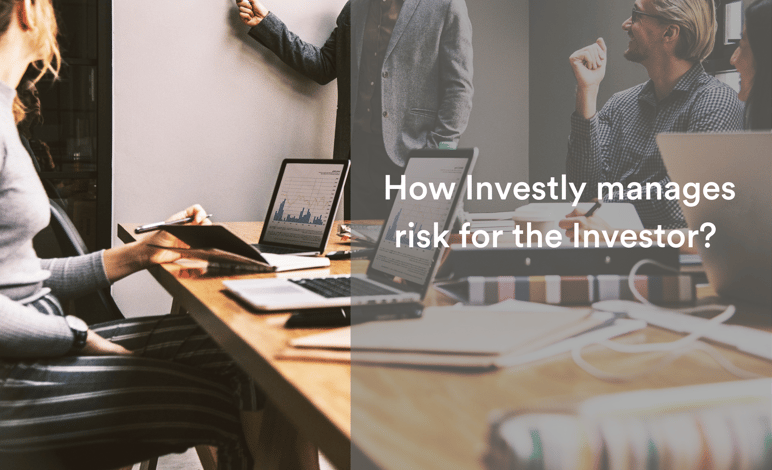
The purpose of Investly platform is to help businesses grow. We know that in times of growth, the need for working capital is often greater and, in the absence of capital, achieving the planned success may take much longer, or may not be achieved at all, because the right moment or organic growth cannot be utilized.
Investly’s second purpose - which is supporting the first one, and is certainly not less important, has been to provide investors with the opportunity to invest in invoices and earn a profit doing that. That's the reasons why we’re here, to bring together companies seeking for invoice finance and investors.
Risk and return are the most important factors for an investor. One of the fundamentals of investing is knowing that risk and return are interdependent, and that a higher return on investment also usually means higher risk. When investing on Investly platform, this may also be so, but not always.
Asking for a buyers confirmation before making the payment
One of the most important things when paying out money to a customer is getting a buyer's confirmation. The buyer confirmation essentially provides us with assurance that the services or products appearing on the invoice have been delivered to the buyer and that they are satisfied with the quality of them. It also confirms that the invoice is correct and that it will be paid to Investly on the due date. At the same time, the buyers confirmation is a document by which the buyer confirms its obligation to pay the invoice. Should any quality, warranty or other problems arise, they must be resolved between the buyer and seller, and the invoice must still be paid to Investly in due time.
The risk is shared between the seller and the buyer
We have received feedback from investors that when making an investment decision, many evaluate only the buyer's company and their credit rating. Doing so you’re certainly doing nothing wrong, as the buyer is responsible for paying the invoice. After all, our autobidder also relies on buyer ratings.
However, due to the increased invoice volumes, the autobidder is not always able to fill the invoices fully. This allows the investor to make a bids manually. It does require more work from the investor, as they should be aware of the auctions happening and the bid must also be made manually. Often, however, it also gives the advantage of a higher annual return.
But, due to the recourse obligation in the factoring agreement, it is also worth looking at the seller. Recourse means that even though the seller of the invoice has transferred the claim to Investly and the obligation to pay the invoice rests with the buyer, we have the right to claim the invoice from the seller.
In addition, by financing the invoice through Investly, the invoice seller is to be jointly liable with the buyer for paying the invoice. This means that the seller is actually responsible for paying the invoice the same way as the buyer. As a result, our credit team always takes both buyer and seller into account when making decisions. These two factors determine the funding limit and the maximum annual interest rate.
Seller board member personal guarantee is a standard
Just as no investment is completely risk-free, so isn’t entrepreneurship in general. In order to ensure that the seller's board of directors is actively interested in finding prompt solutions to any problems that may arise, our standard requirement is that the seller's board member gives us a personal guarantee. Sometimes also there may be more than one personal guarantee, for example, the limit is jointly and severally guaranteed by all business owners or members of the board.
There are situations where a board member’s personal guarantee is not taken, but these are more exceptional. Such situations are more likely to occur when other collateral is provided or the risk of failure is low.
The board member personal guarantee gives the factor the right to ask for the credit issued now not only from the buyer and seller, but also from the board member of the seller company.
Mortgage, commercial pledge and third party warranty
If necessary, we ask for additional collateral, such as a mortgage on real estate, a notarized commercial pledge on property, or another affiliated company to secure the limit provided. We usually inform investors of the existence of additional guarantees before the auction, as well as displaying this information in company descriptions.
Credit analysis and background checks remain the cornerstones of decision making
All transactions on the platform are preceded by one of the most important processes. It’s doing background and credit checks of both the seller and buyer company and its owners. While the credit analysis assesses the solvency of businesses, background checks look more closely at the business and histories of business owners, which are one of many factors taken into account when deciding on a limit and determining the securities required.